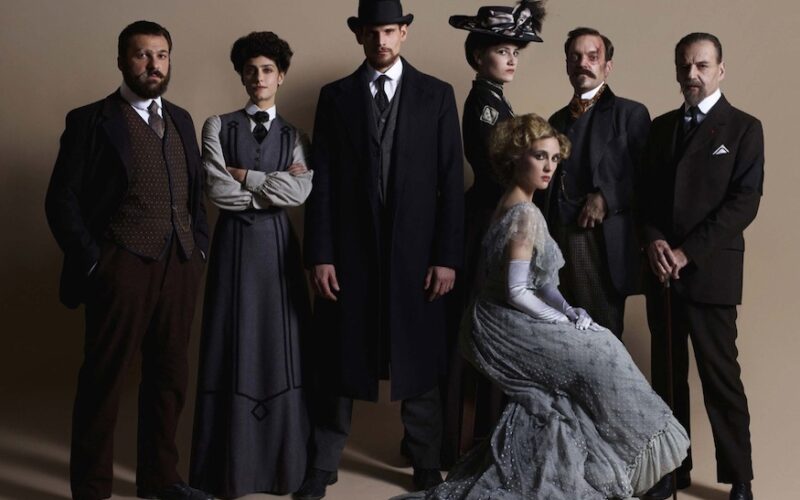Paris Police 1905
When I heard that there would be a second season of this French television serial, I wasn’t sure how I felt about it. I liked Paris Police 1900. But I liked it more (or thought I did) as a one-off than as the foundation for an ongoing series.
The differences in format between these formats aren’t great, but they are real. Series television tends to be more character-driven, with story “arcs” rather than character arcs within a single story. Stand-alone episodics usually have an end in mind, and divisions into episodes are more about pacing and dividing the story than about how much story one can tell.
There are exceptions. The Wire is the gold standard for having seasons that stand alone while also serving as phases of a larger whole. In Treatment allowed patient stories to come to a close while using Paul’s (the therapist) story to provide continuity and depth from season to season. NYPD Blue began as a case-driven procedural and morphed into a long-form character redemption arc. Paris Police 1900, as much as I loved it (and as its title suggests) was better at capturing a time and place than in developing the characters occupying it.
That being said, many long-running and successful series hit their stride in a second season. It may take some time for writers and actors to figure out their characters, which can, in turn, dictate what direction the stories can go. Shows like House, M.D., ER, and The Practice were all able to substantively alter directions within a formulaic format. And, to be honest, shows like Lost, Game of Thrones, Beverly Hills, 90210, and How I Met Your Mother struggled to maintain focus or stay on track after setting up multi-season arcs.
If I misjudged the ability of Paris Police 1900 to transition into another phrase, one reason might be that I may have fundamentally misunderstood who was at the center of the ensemble. Because of the advertising and the formulas around American television, I kept trying to read it through the lens of Antoine Jouin (Jérémie Laheurte) being the protagonist. He was a young man, handsome, romantically available (oh how American serials love some sexual tension), and a bit of an audience surrogate as a new entrant into the world depicted. My problem was that Jouin’s story (particularly his infatuation with the strong-willed female legal assistant) was the most generic, least interesting piece of a finely crafted mosaic.
Paris Police 1905 is, at least in early episodes, more squarely revolving around the police chief Louis Lépine, and I like that. Lepine seems a bit older than I (he’s come out of retirement), but I am closer to him in age than I am to Jouin. Perhaps that is one reason that the question he confronts–can one man influence the development of an institution and, through it, society–is far more interesting to me than whether an individual perpetrator will be arrested and brought to justice.
Jouin is back, though, and so are Fiersi and the Steinheils. Lepine’s adult daughter joins the cast of characters and Lepine’s interaction with her provides an interesting comparison to his treatment of his wife in Paris Police 1900.
This season drops November 14 on MHz Choice. I doubt it will have the power of Netflix’s Squid Games to capture American viewers scared of subtitles, but given the paucity on new offerings on American television caused by writes’ and actors’ strikes, I keep waiting for American audiences to discover this channel with its treasure trove of as yet unconsumed television content.

